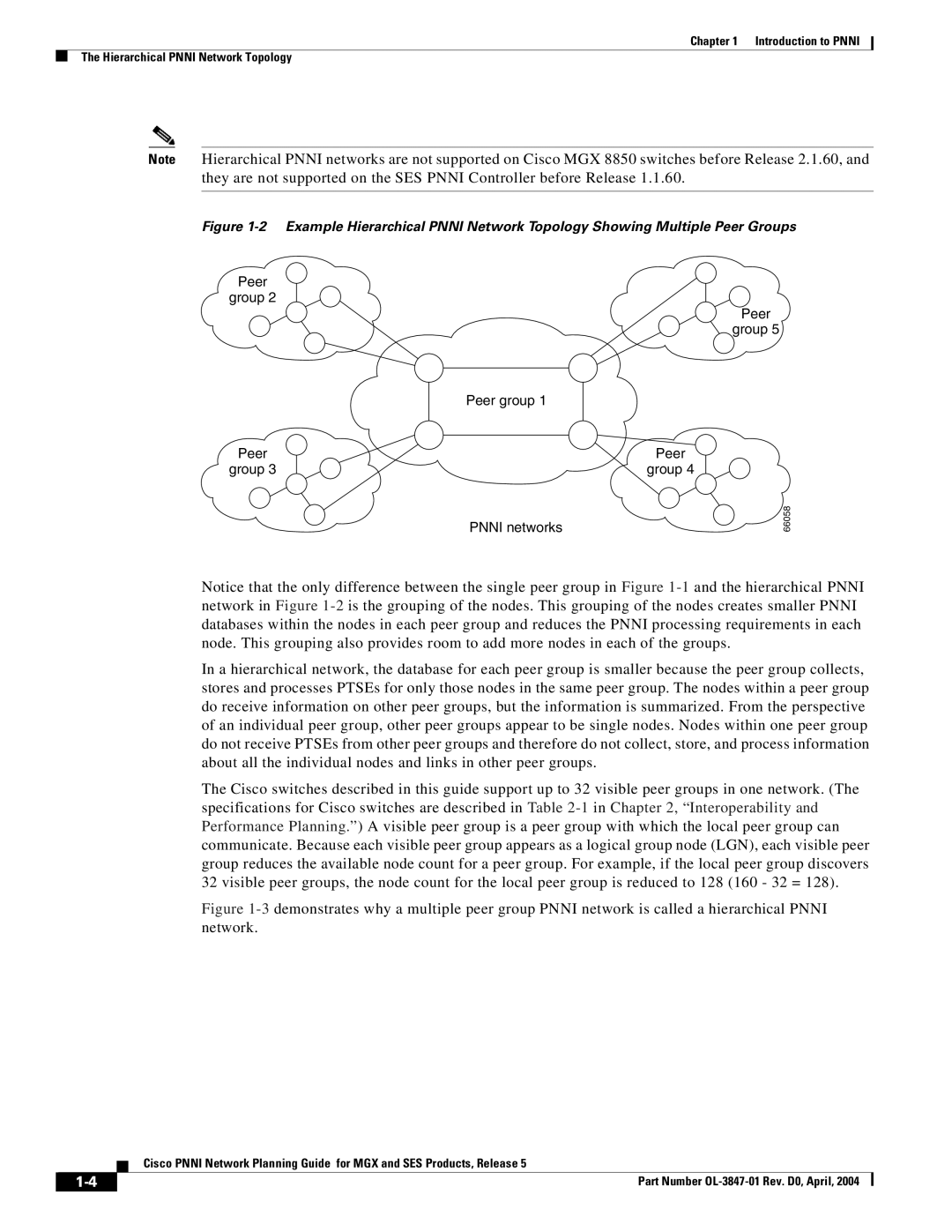
Chapter 1 Introduction to PNNI
The Hierarchical PNNI Network Topology
Note Hierarchical PNNI networks are not supported on Cisco MGX 8850 switches before Release 2.1.60, and they are not supported on the SES PNNI Controller before Release 1.1.60.
Figure 1-2 Example Hierarchical PNNI Network Topology Showing Multiple Peer Groups
Peer group 2
Peer group 5
Peer group 1
Peer | Peer |
group 3 | group 4 |
| PNNI networks |
66058
Notice that the only difference between the single peer group in Figure
In a hierarchical network, the database for each peer group is smaller because the peer group collects, stores and processes PTSEs for only those nodes in the same peer group. The nodes within a peer group do receive information on other peer groups, but the information is summarized. From the perspective of an individual peer group, other peer groups appear to be single nodes. Nodes within one peer group do not receive PTSEs from other peer groups and therefore do not collect, store, and process information about all the individual nodes and links in other peer groups.
The Cisco switches described in this guide support up to 32 visible peer groups in one network. (The specifications for Cisco switches are described in Table
Figure 1-3 demonstrates why a multiple peer group PNNI network is called a hierarchical PNNI network.
| Cisco PNNI Network Planning Guide for MGX and SES Products, Release 5 |
Part Number |
